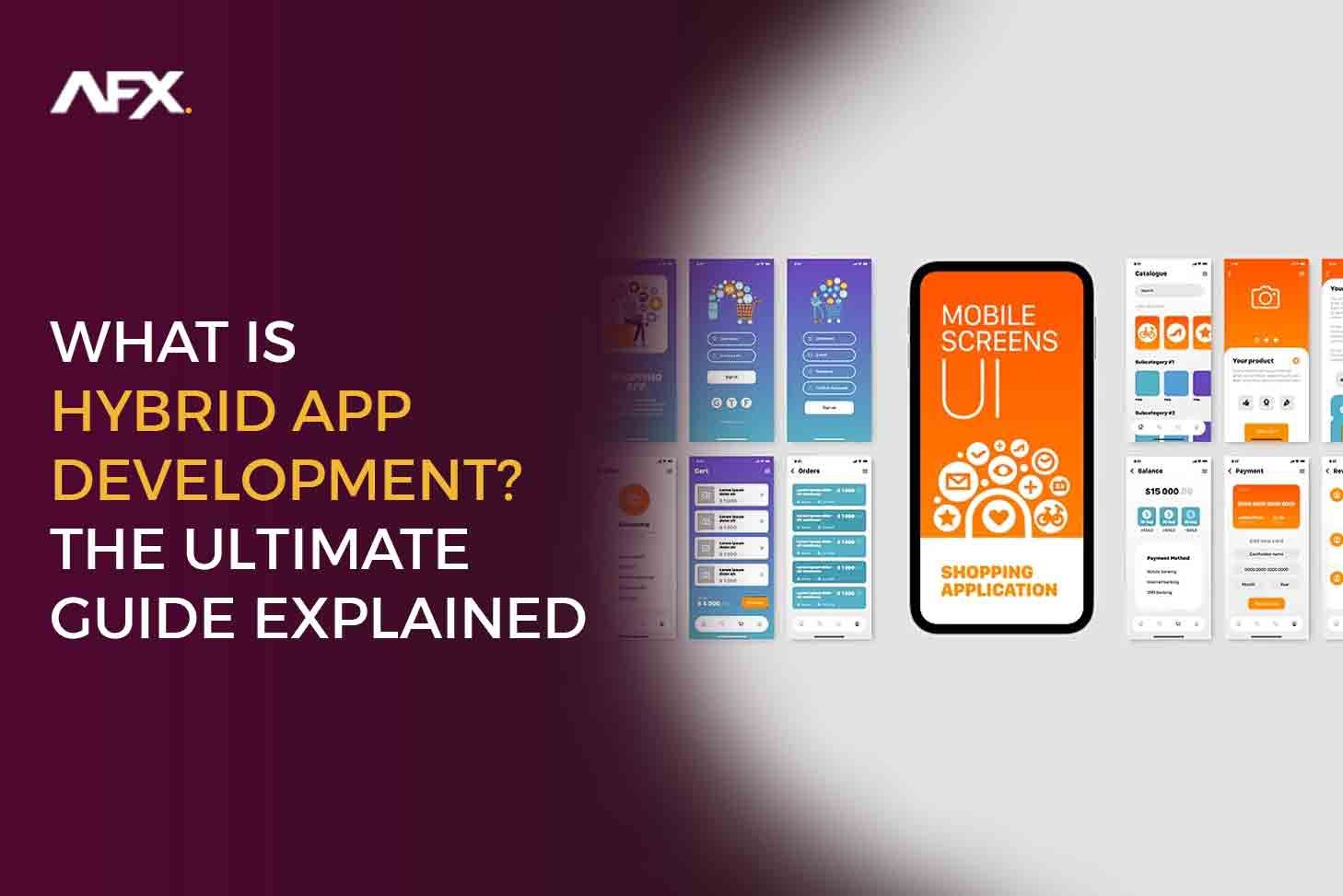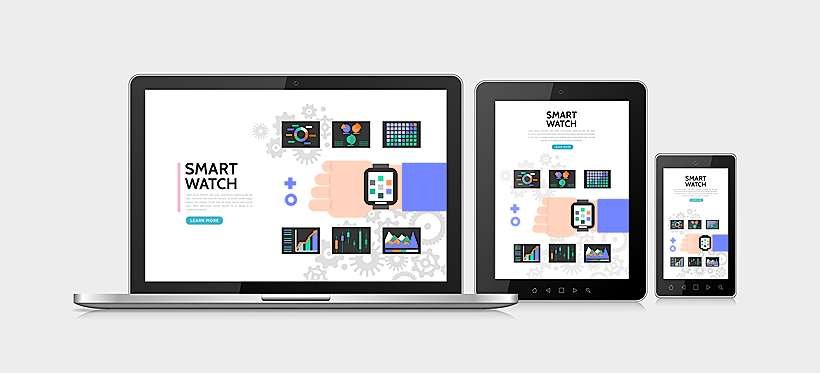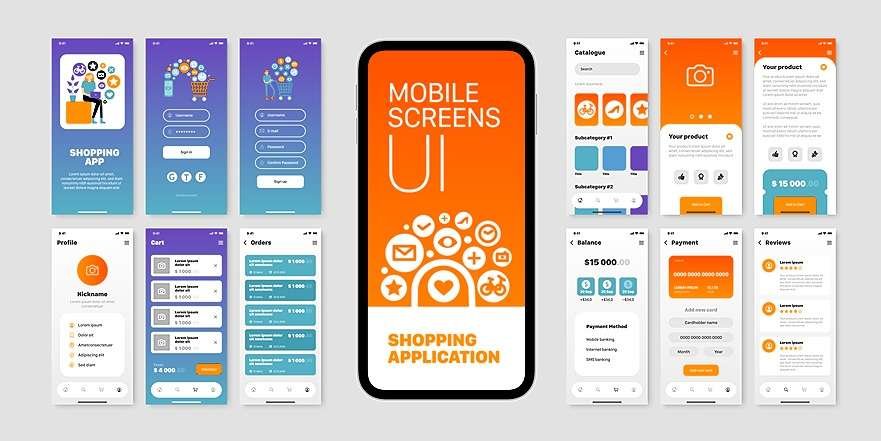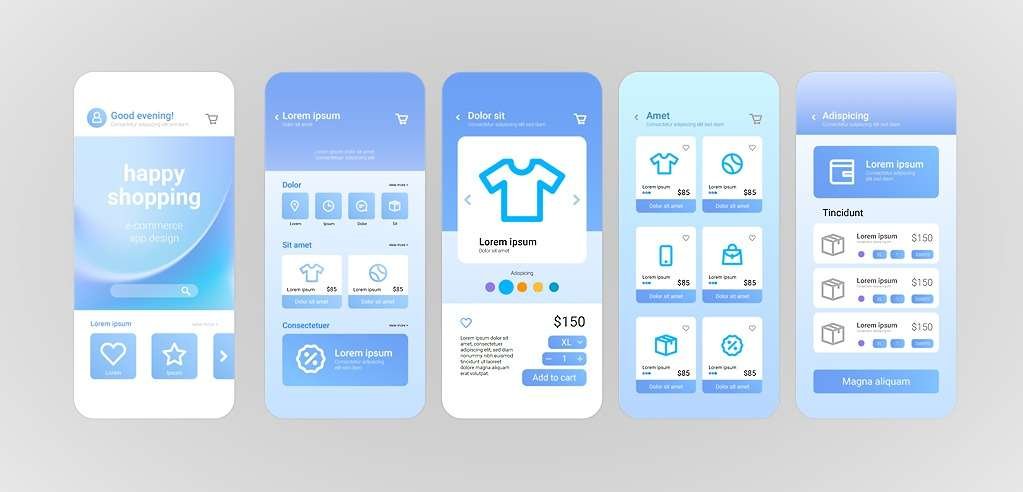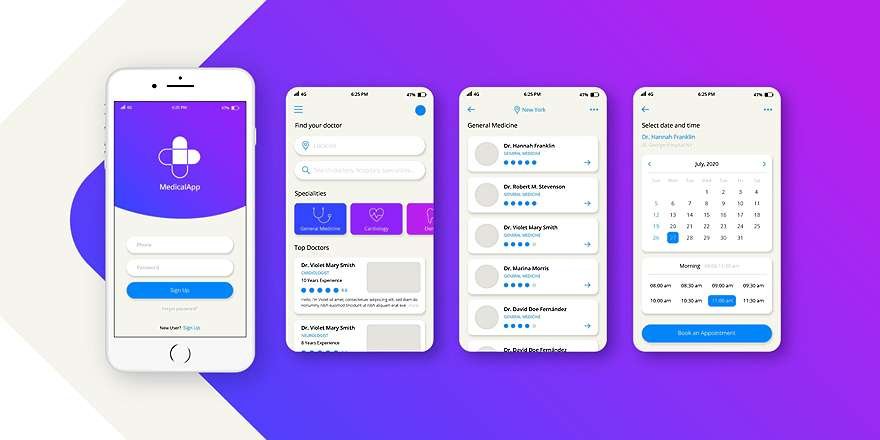- Amelia Sabestine
- 0 Comments
- 1247 Views
Do you want to create cross-platform mobile applications that run smoothly? The development of hybrid apps is the answer. Businesses must effectively reach people on iOS and Android platforms in this modern digital age, where smartphones and tablets are the most used devices. Hybrid app development is useful in this situation. But what is a hybrid app development precisely?
This detailed guide will cover all aspects of hybrid app development and its advantages and differences from other approaches. You will learn everything you need from the following guide to get going.
What Is A Native Mobile App?
“Native mobile apps” refer to applications developed using the native programming tools and language of the platform.
Native Android applications are typically coded in Kotlin or Java and compiled using Android Studio, while native iOS applications are written in Swift or Objective-C and compiled using Xcode.
By utilizing these platform-specific tools, developers gain comprehensive and streamlined access to the device’s functionalities, including sensors, the user’s address book, and the latest cutting-edge technologies available on the phone. These default solutions provide developers with a simplified approach to harnessing the device’s full potential and creating immersive native experiences.
Since native programs’ code is written closer to the “metal,” they frequently perform better as well. You will have accessibility to all of the native user interface (UI) features and layouts in addition to being speedier. They should operate and connect like any other UI element on that platform, even though you’ll undoubtedly want to customize them to match the aesthetic of your applications.
However, Swift-based iOS applications cannot be executed on Android and vice versa. If you aim to release your software for both iOS and Android, it becomes essential to design specifically for each operating system. This may require a larger team and budget to accommodate the separate development efforts.
Furthermore, remember that when your app is distributed through the respective platform’s app store, it becomes subject to the rules and limitations set by that particular platform. This implies that the same approval procedure must take place for each release, whether it contains a new feature or a bug repair. This could take a day to two weeks for the Apple App Store.
What Is A Web Application?
Some people view the risk of having their application rejected by anonymous app store gatekeepers as too great. Moreover, there are some instances where many top-notch applications violated laws and faced consequences. This leads to a loss of revenue as they were removed from app stores.
In response, many other developers created web-based programs that were easy to operate independently of app stores and distributed across several mobile and desktop platforms. These programs are web applications developed using HTML, CSS, and JavaScript and can be utilized with various platforms and libraries.
Though, it is important to be aware that if you go for this development approach, your application will be subject to limitations and some unique features of the user’s mobile browser. This entails that it won’t have whole access to the user’s device, counting their address book and other data.
While access to features like GPS and the camera has helped in the past, depending on the functionality required for your application, this may still be a problem. The fact that many of the typical application UI components, such as the tab navigation, are not natively available and must be constructed presents one of the bigger problems for designing apps utilizing web technologies. This could result in your application not functioning properly.
However, many UI frameworks have taken considerable care to accurately replicate most of the standard UI elements required for your app, minimizing this risk. Considering that they can quickly produce an application from a single codebase that can be utilized on a range of platforms and maintained with a new feature or bug repair by simply releasing it to your server, this option appeals to some development teams.
What Is Hybrid App Development?
Developing an app using a single project that may target all necessary platforms, such as Android, iOS, Windows, etc., is the foundation of the hybrid app development process. Developers are especially drawn to hybrid software since it can have a single code base that can be used for multiple platforms.
Developers simply need to develop the code once. Then it can be repeated when designing the app for any other target platform, except for a few parts of the program (the fundamental one being the UI, which customers expect to be personalized to their platform of choice).
Two undeniable facts drive the desire for hybrid apps: Compared to native programs, they are easier to build, and the source code may be used to grow a business’s presence on other platforms, such the web.
Businesses find hybrid mobile app development particularly appealing since it permits them to simultaneously enter the mobile market on all major platforms.
Advantages Of Hybrid Mobile Application Development
Ease Of Development
Since developers only need to develop code for a single app, creating hybrid apps is simpler than creating native ones. For each operating system, they don’t need to learn different programming languages.
HTML, CSS, and JavaScript are the main web technologies for hybrid mobile apps. Developers can choose from frameworks like Xamarin, Flutter, React Native, and others.
Less Time to Market
Due to hybrid app development, businesses may use their current development tools to create code for their applications. They do not need to search for the latest technology or hire programmers specializing in specific platforms to develop their applications.
Moreover, instead of creating a new code for each platform, they can use the same code across multiple platforms. This significantly reduces the time needed to launch the program.
Cross-Platform Compatibility
One of the fundamental benefits of developing hybrid apps is cross-platform compatibility. The developers must write the code just once and run it on multiple platforms. Unlike native apps, hybrid apps are not platform-specific.
They are ideal for businesses that don’t want to devote time and money to developing unique apps for each platform.
Easy Scalability
In building mobile applications, scalability is essential. Scalable software enables you to add new features and functions and provides more flexibility, dependability, and security.
Hybrid mobile app development offers easy scalability since it doesn’t require significant software changes to expand the app across different platforms. A single code update will affect all systems, and this update only needs to be performed once.
Cost-Effective
The price of developing apps is rising. When you include the cost of the development kit, hiring engineers, and development time, creating native apps for each platform is more costly than creating a hybrid app because it requires more developers, resources, and time.
In contrast, a hybrid app doesn’t require a platform-specific development kit. You can earn more money and save a lot of expense by not having to recruit expert developers on multiple platforms.
User Experience
Creating hybrid mobile apps can reuse the design components across several operating systems. No matter their platform, it guarantees users the same experience, enhancing the brand’s reputation.
Easy Maintenance
Since developers don’t need to work on various code bases and keep an eye on multiple platforms, a hybrid app development strategy makes it easier to manage the application code. They may update the apps across all platforms at once while working on a single back-end.
Stages Of Hybrid App Development
Web technology and native capabilities are combined during the development of hybrid mobile apps. Let’s examine the many phases of creating a hybrid application.
1. Planning
The initial step in the process is to decide if creating a hybrid app is in your best interest. If you are sure of it, you must decide what features it should contain. Additionally, you must choose the appropriate tech stacks when designing the app.
2. Designing The Architecture/Interface
In every Software Development Life Cycle (SDLC), the design phase is crucial. Software architects create a thorough product architecture in this stage based on feedback from stakeholders and after examining the business needs.
3. Development
Once you have decided on the features of the app, now you need to develop a code for the back-end development of the app, a back end that is secure and reliable and delivers high performance. Additionally, you also need to develop a visually attractive interface.
4. Testing And Debugging
The developer has to test their code to determine if it has turned out exactly what was planned initially. The front end, as well as the back end, has to be tested to remove any bugs/errors that might have been incurred.
5. Deployment
It is the last phase of the creation of your hybrid mobile app. The application must be available to consumers to download and install across various platforms.
6. Maintenance
Your hybrid app needs upkeep after distribution, such as bug fixes and routine updates. It enables you to introduce new features and offer a fantastic user experience. To stay ahead of the competition, you must also use new technology and the most recent trends in app development.
Difference Between Mobile App And Hybrid App
There are two different methods for creating applications for mobile devices: mobile apps and hybrid apps. The main variations between the two are as follows:
Platform Compatibility
Mobile App
Platform-specific native apps are created specifically for each platform. You must create two distinct apps if you want to target both iOS and Android.
Hybrid App
Cross-platform hybrid apps allow developers to develop code just once and utilize it on multiple platforms. This is because one codebase can work for iOS and Android, dramatically decreasing the development effort and time.
User Experience
Mobile App
Because they are created exclusively for a given platform, native apps offer an incredibly optimized user experience. They can fully utilize the device’s hardware capabilities, such as the camera, GPS, or push notifications, resulting in an intuitive and quick user interface.
Hybrid App
While hybrid apps can attain a native-like look and feel by utilizing web technologies, there may be some performance issues. Hybrid app foundation improvements have greatly closed the gap and given users a more responsive and fluid experience.
App Store Distribution
Mobile App
Platform-specific app shops, such as the Apple App Store or Google Play Store, distribute native apps. Every platform has a unique submission and review procedure that guarantees the quality and security of the apps.
Hybrid App
Like native apps, hybrid apps can be made available through app stores. They can, however, also be made available as web apps or through different app distribution methods.
Revolutionize Your Hybrid App Development
Now you know what is hybrid app development and what is a hybrid application. Making the appropriate decision when developing your mobile application is essential. Making the best choice requires taking into account aspects like development costs, time, and your target audience. Unless you are specifically targeting a mobile platform-using audience, hybrid mobile app development can be quite advantageous for your company.

